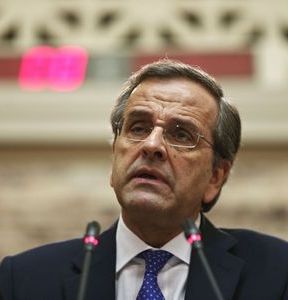Failure for presidential vote in Greece could lead to snap polls
Lawmakers from Wednesday will vote for a new Greek president in a ballot that will lead to snap general elections if they fail – putting on the line years of efforts to turn around an economy in crisis. The government brought forward the indirect election from February, when it will be locked in delicate negotiations with the cash-starved country’s creditors, the European Union and the International Monetary Fund. But the gamble to stave off uncertainty during those talks could backfire, given the government’s slender majority in the 300-seat parliament – and the rise of the opposition radical leftist party Syriza, which wants to end an austerity drive and re-negotiate Greece’s bailout.
The crisis of the last few days is now taking on a serious dimension.
Bank of Greece chief Yannis Stournaras
The administration headed by conservative Prime Minister Antonis Samaras has little chance of mustering the 200 votes it needs in the first and second rounds to elect its candidate to the largely ceremonial post, former EU environment commissioner Stavros Dimas. If no majority emerges for a name in the third or final round on December 29, when 180 MPs’ votes are needed, early elections have to be called. If that happens, Syriza is seen as the favourite. The EU and the IMF in 2010 and in 2012 extended loans to bailout Greece to the tune of $300 billion in return for a commitment to severe austerity measures and ambitious reforms.The vote will be closely followed across Europe, where the fate of Greece, and its place in the eurozone, is not secure.

Europe greece vote